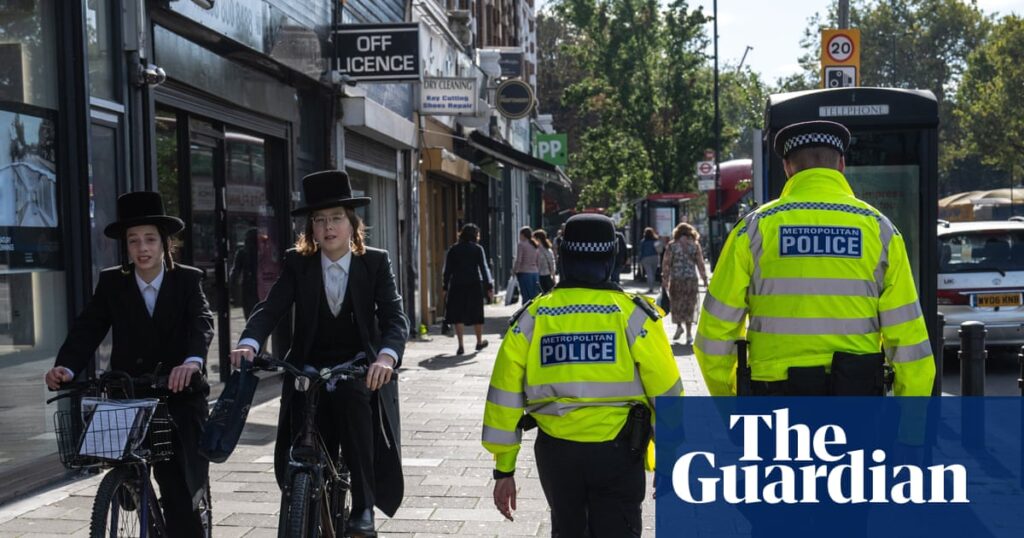Feelings of safety in the UK’s Jewish community have declined sharply in the last couple of years, according to the largest survey of British Jews since 7 October 2023.
The research, conducted in June and July, found 35% of Jews felt unsafe in Britain in 2025, compared with 9% in 2023 before the Hamas attacks.
Perceptions of antisemitism had also intensified, with 47% of British Jews seeing it as a “very big” problem – up from just 11% in 2012.
The research, conducted by the Institute for Jewish Policy Research (JPR), also found 32% of Jews reported experiencing at least one antisemitic incident in 2024.
Meanwhile, the Community Security Trust (CST), which has been monitoring antisemitic incidents since 1994, recorded 1,521 cases in the UK from January to June 2025. This was the second-highest total ever recorded in the first half of any year, second only to the first six months of 2024 with 2,019 in the immediate aftermath of the 7 October atrocity.
Of the 1,521 antisemitic incidents this year, 968 occurred across Greater London and Greater Manchester, the two UK cities with the biggest Jewish populations.
The new report from the JPR examined how British Jews are navigating “a period of profound challenge and instability”.
It found emotional attachment to Israel had increased – with 75% of British Jews feeling emotionally attached and 49% “very attached”, compared with 72% and 40% respectively just before the 7 October attacks.
However, it also found “anti-Zionist identification” had risen from 8% in 2022 to 12% in 2025, most notably among younger Jews, with a quarter (24%) of 20- to 29-year-olds now identifying as anti-Zionist, a rise from 13% in 2022.
While “Zionist identification” remained stable at 64%, criticism of Israel’s conduct in Gaza grew as 51% said it clashed with their Jewish values, rising from 40% in 2024.
Dr Jonathan Boyd, JPR’s executive director, said: “I am struck particularly by the broad resilience of British Jews – how, in spite of the considerable political and emotional turmoil surrounding them, their sense of their own Jewishness and engagement in Jewish life remains largely intact.
“That is not to suggest the war and its repercussions have not left their mark – many Jews feel less secure, more isolated and more morally conflicted.”
The CST said their most recent data reflected “sustained levels of antisemitism across the UK”, dominated by the aftermath of 7 October, including the “prolonged subsequent conflict”, media coverage, political rhetoric and public discourse.
“This impact is evident in the fact that 779 incidents, 51% of the overall total, referenced or were linked to Israel, Gaza, the Hamas terror attack, or the subsequent conflict,” the CST added.
“703 evidenced anti-Zionist political motivation … alongside explicitly antisemitic comments or abuse. The terms ‘Zionist’ or ‘Zionism’ were employed in 210 instances, while the offender made a direct comparison between Israel and the Nazis on 172 occasions.”
Every month in the first half of 2025 saw at least 200 incidents. The highest monthly total in the first half of 2025 came in June, with 326 incidents, coinciding with an escalation in the Israeli military operation in Gaza and war between Israel and Iran.

